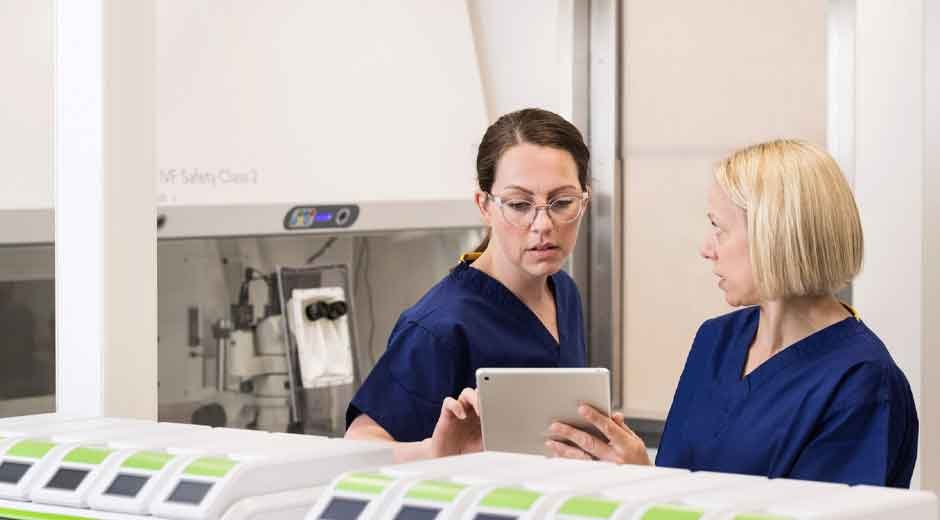As technology progresses, prospective parents’ options regarding this change change pretty fast. For example, Preimplantation Genetic Testing for Monogenic Disorders (PGT-M) is performed alongside in vitro fertilization (IVF) to increase the probability of a successful pregnancy with a healthy embryo. With insight into the role the PGT-M screening plays in the overall IVF cycle, people can gather the right information to make the right choices for their reproductive lives.
Understanding IVF
IVF, or In Vitro Fertilization, is the fertilization of an egg by sperm outside of the body. This process is commonly used for couples who are having infertility difficulties. In-vitro fertilization (IVF) involves retrieving eggs from the ovaries and fertilising them in a lab. The embryos are then implanted in the uterus to be carried to term. IVF has helped so many people become parents.
The Role of PGT-M
PGT-M test is one of these genetic abnormalities, and the role of this method is essential in this field. It is primarily designated for identifying single-gene disorders, which arise when a mutation in a single gene causes a disease that can significantly impair health.
It can be conducive for individuals with a known risk of transmission. It does so by screening embryos before implantation, so only those without the putative genetic faults can be chosen. This helps to have a normal pregnancy and minimizes the risk of passing a genetic disease.
The Screening Process
IVF is used to create embryos, and embryos are screened for PGT-M. After some days in culture, usually five to six, a few cells can be gently removed from each embryo. During this step, called an embryo biopsy, a small sample is gently removed from the embryo without disrupting it.
In a lab, they test the genetics of the cells they extract. These disorders already have specific genetic mutations linked to their presentations, so scientists check the DNA for these mutations. This analysis guides the picking of embryos that do not carry these conditions. The viable embryos are then selected for implantation.
Benefits of PGT-M
There are multiple benefits associated with PGT-M for all the people who choose IVF services. The most significant advantage is a higher chance of getting pregnant. Choosing embryos free of genetic defects increases the odds of success in implantation and carrying a healthy pregnancy to term.
Furthermore, PGT-M gives reassurance for people who have a relative history of genetic disorders. The alleviation of fears about the presence of some genetic issues in embryos can reduce anxiety and give parents-to-be greater peace of mind.
The other significant benefit is avoiding agonizing choices later in a pregnancy. Identifying embryos at an early stage allows future parents to make decisions before implantation, rather than facing examination or a complex choice during a pregnancy.
Considerations and Limitations
Though beneficial, PGT-M has some limitations that we should be aware of. This isn’t cheap, and not everyone can afford access to the process. The procedure may or may not be covered by insurance, and co-pays can be high if there is partial coverage.
In addition, even with PGT-M, pregnancy success is not guaranteed. Although it improves the odds of healthy embryos being selected, many other factors, including maternal age and general health, determine whether an embryo will lead to a successful IVF with live birth.
There are also ethical implications of genetic testing. Selecting which embryos to implant according to genetic information raises tricky moral questions. It is imperative to consult with counselors and medical professionals to navigate these considerations.
The Importance of Genetic Counseling
Genetic counseling is the next step in the PGT-M process. Counselors play an essential role in interpreting genetic risks and test results (if any). They assist people and couples in evaluating the benefits and possible downsides of PGT-M as they pertain to their particular situation.
Counseling allows for discussions surrounding family history, risk assessment, and potential results so that everyone can make informed and considered choices about reproduction.
Conclusion
PGT-M, a new reproductive genetic technology linked with IVF, is a significant medical innovation. Preimplantation Genetic Testing for Monogenic Disorders (PGT-M) allows prospective parents to enhance their chances of having a healthy pregnancy by detecting genetic abnormalities before an embryo is implanted. Despite some complications and restrictions, the advantages afforded by PGT-M are significant for at-risk individuals with genetic diseases. Fortunately, genetic counselors and other medical health professionals help the person go through this process confidently so that the individual can make decisions based on their family goals.






